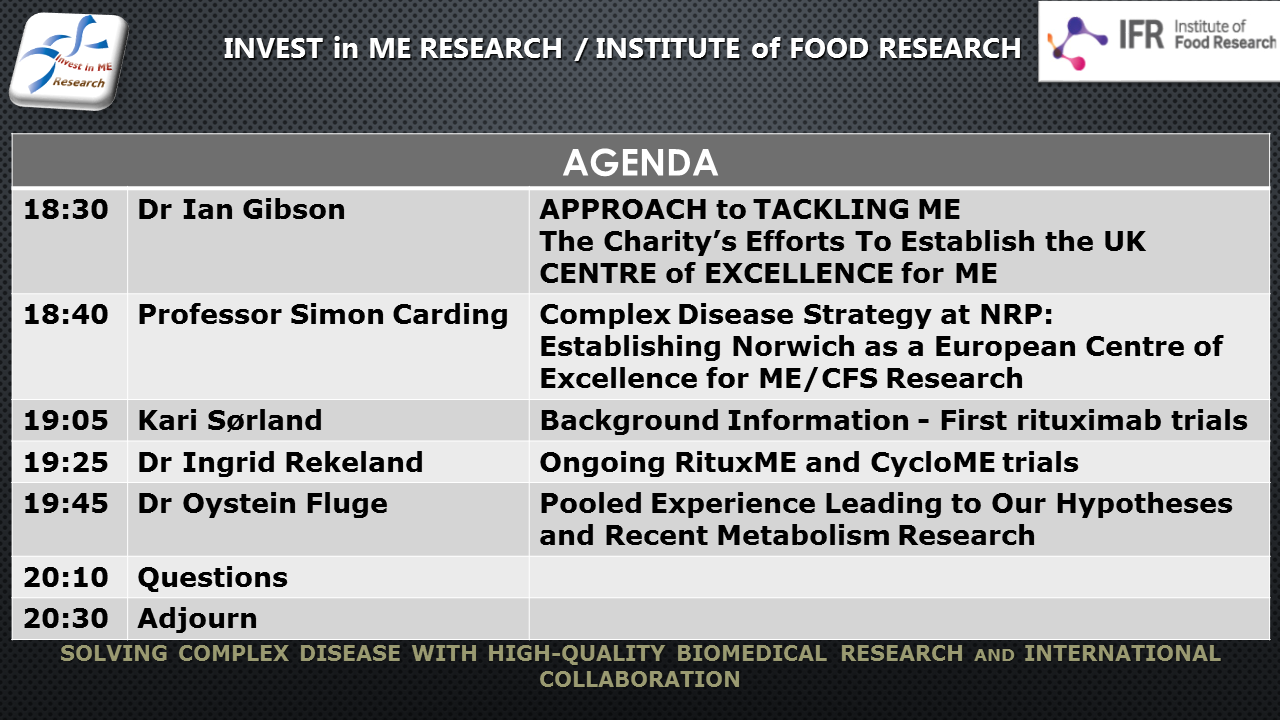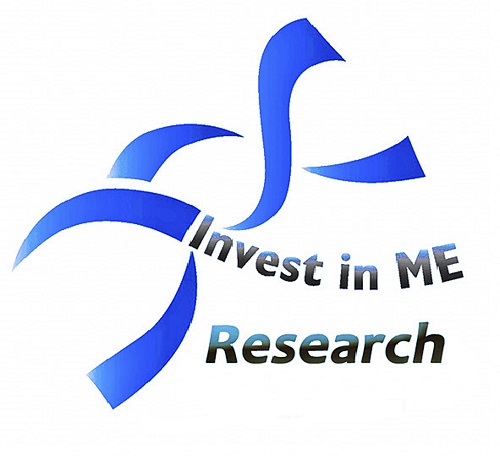Public Talk by Dr Øystein Fluge and Bergen Team
Solving Complex Disease With High-Quality Biomedical Research and International Collaboration



We are pleased to announce that Dr Øystein Fluge and his team from Haukeland University Hospital in Bergen, Norway, will be giving a public lecture in Norwich on 26th January 2017.
Professor Simon Carding of University of East Anglia/Institute of Food Research will also be speaking.
Professor Carding is leading a team
of ME researchers in Norwich - click here
The lecture will take place at The Assembly House, Norwich beginning at 18.30.
Dr Ingrid Rekeland and Kari Sørland from Haukeland University Hospital will also be present and presenting.
After the lectures a panel discussion will be held and questions can be accepted from the audience.
This is a wonderful chance to hear some of the top researchers of ME in the world
speaking of the work being carried out in Bergen, Norway and Norwich, UK.
Refreshments will be available.
The agenda is here -

The Assembly House is in the centre of Norwich, opposite the Millennium Library, and with good car parking possibilities and public transport links.
Here is the map reference - click here
The event is free but registration is required so please contact us.
If you would like to reserve a place then please use
the contact form to request places or email to info@investinme.org
with subject title Dr Øystein Fluge Public Talk.
If you would like to support to our research funds then links are available to be shared on the right of this page.
If you would like news from Invest in ME Research then subscribe to our free newsletter.
See also Institute of Food Research article - http://www.ifr.ac.uk/news/events/2017/01/mecfs-biomedical-research/
Further Reading
3. Haukeland Phase II rituximab clinical trial
4. ME/CFS – Through The Eyes of a Young Researcher
5. IiME Announce New Target for B-Cell PhD Studentship
7. The IiME Proposal for a Centre of Excellence for ME
8. The European ME Research Group
Research, Education, Advocacy

Our research strategy and the research funded by the charity. IIMER is facilitating and funding a strategy of biomedical research into ME. The charity is currently funding important research projects for ME in the UK and Europe. The main hub of research is in the Norwich Research Park with the Quadram Institute and University of East Anglia. The charity is also supporting the development of fundamental research into ME in Europe by supporting collaborative projects and discussions.
Read MoreOur proposal for a UK Centre of Excellence for ME. Translational biomedical research - an iterative feedback of information between the basic and clinical research domains in order to accelerate knowledge translation from lab to bedside and back to lab again - allows translation of findings in basic research more quickly and efficiently into medical practice to produce more meaningful health outcomes and facilitate the sharing of repositories and research-based facilities and laboratories. This is the model that we are supporting for a Centre of Excellence for ME in Norwich Research Park.
Read MoreA founder member of the European ME Alliance (EMEA) – a grouping of charities and patient organisations working together across Europe. The charity also initiated the European ME Research Group (EMERG), European ME Clinicians Council (EMECC) and Young EMERG for young/early career researchers in order to build collaborative research and clinical expertise in Europe.
Read MoreOur annual international research Colloquiums/Conferences attract researchers from around the world in order to discuss experiences and open up collaborations and discover answers for this disease. Despite limited resources the charity has facilitated new directions in research and enabled barriers to be broken down between different areas of science, bringing together biomedical research from different disciplines. By facilitating and initiating these links far quicker progress can be made in finding the cause of this disease.
Read MoreRaising awareness and advocating for the future of patients and their families has been part of the charity's work since it was formed.
Read More
Last Update 12/11/2016


